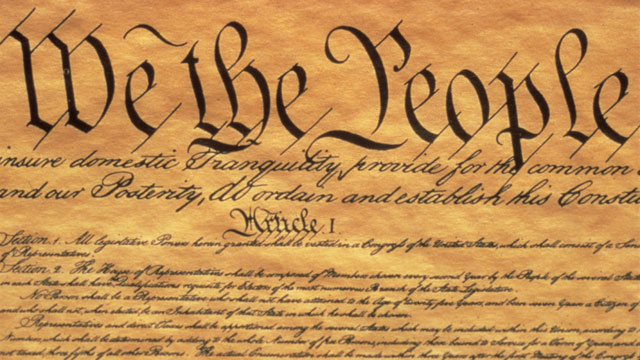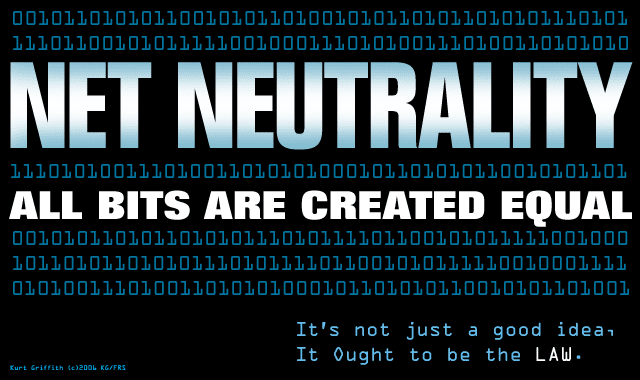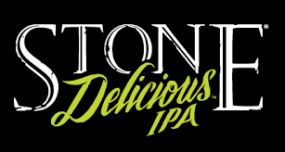
Jason Evans
I am a co-founder and the editor of drinkfive.com. In order to stave off fantasy football insanity, Dave and I have branched out to cover a variety of interests. When I'm not knee deep in wikipedia pages, I like to hang out at breweries or a disc golf course (especially both in the same day). FSWA Member for 5+ years.
Fantasy Football Podcast - March 17 - Around the NFL, 2015 Rosters!
We're back to fantasy football, baby! Tonight marks the 2015 return of fantasy football talk on the drinkfive network. We've got a lot of moves to catch up with, and we managed to stop off with nearly every team and at least talk about who they gained and who they lost. Since it was St Paddy's day, we also enjoyed some Irish Whiskey and toasted to drinkfive writer Troy Maples, happy birthday buddy!
Fantasy Football Podcast - March 17 - Around the NFL, 2015 Rosters!
We'll be back next week with another retrospectical episode. We'll be talking about all things bacon, and in two weeks we'll be discussing digital currencies (ya know, like bitcoin or dogecoin). We'll check back in on the fantasy football radar around the NFL draft and bring our rookie expert Shawn Foss (@shawn_foss) on to tell us who to look out for.
Welcome to the TV Soup podcast, the home of drinkfive.com’s television review series. This episode continues our discussion on the Breaking Bad spin-off prequel series Better Call Saul starring Bob Odenkirk. The seventh episode of the season returned to misadventures of one James M McGill, Esquire. We also were treated to my favorite montage of the season, which sparked some heated debate on the show. Click below to play the episode, and check out my review of this episode here.
TV Soup - Better Call Saul - "Bingo" Review
Our plan is to review every episode of whatever series we are currently watching (unless they end up being too horrible for either of us to handle, in which case we have no problem panning the show and changing it up!) both on the podcast and also in more traditional, long-form articles. Please follow along with us as we begin our journey into Better Call Saul and thus into the mind of Jimmy McGill / Saul Goodman.
Better Call Saul is back for another week of the misadventures of James McGill. Last week, it was a “Jimmy lite” episode, focusing on Mike’s backstory, but this week we’re back with Jimmy firmly in focus. Of course, we do wind up starting off with a little unfinished business from last week, the return of the notebook.
On their way to talk to the detectives, Jimmy claims that he and Mike “found” the notebook in the parking lot. Sure, guys. The real meat of this scene is the discussion that Mike has with the older cop. It’s made as clear as it can be (with some cryptic words) that Hoffman and Fenske deserved what they got. It’s also made clear to Mike that if his daughter-in-law doesn’t rat on him, the case is going to end right there.
Mike decides that he’s no longer going to require Jimmy’s services, as he’s fairly certain that his daughter-in-law will not tell on him, and his business with Philadelphia is finally behind him. Mike tells him to send him a bill, and of course, knowing the relationship these guys have in Breaking Bad, we know it won’t be a typical invoice for billable hours.
Tune into the TV Soup Podcast (Better Call Saul, "Bingo" Review)
Jimmy heads over for his daily delivery of ice and bacon to Chuck, and even though they were out of bacon that day, how awesome is Jimmy as a brother to bring him bacon on a daily basis. Jimmy wants to get Chuck back into the swing of just doing something and has his own plan, but seems pleasantly surprised that Chuck is taking his own initiative, spending a solid 120 seconds outside of his house (only 200 meters away from a 60 kilovolt transformer). Jimmy leaves a big stack of paperwork to “store” at Chuck’s house, purposely dropping the wrong form name in order to get Chuck’s legal juices flowing.
Kim and Jimmy go checking out a new office for the James M McGill law firm, and it's a pretty swank place. I have trouble believing that Jimmy can afford this after such a short time in elder law, though to his credit, he has been hitting the bingo circuit pretty hard. He offers a partnership to Kim (in hindsight, he may only be able to afford this place if she works with him and steals a few HHM clients), who turns it down in favor of continuing at HHM, where she's put in a lot of time. Jimmy is clearly disappointed, but stays supportive. Could Kim be one of the ex-wives he mentions in Breaking Bad?
Over at HHM, Kim is explaining the deal that she worked out for Craig Kettleman. Of course, his wife Betsy is having none of it, insisting on not using the word "deal" ("a deal is what they got O.J."), insisting that there is no money, and finally insisting on being found not guilty after a trial. Betsy is almost full on nuts at this point, completely detaching herself from reality with the thoughts of what she wants to do with the $1.6 million. It seems to me at this point, she would send Craig to jail for the full 30 years if it meant that she could keep the money.
The Kettlemans go crawling back to Jimmy, which would have made him thrilled a week or two prior to this, but now he's got his elder law gig rolling and doesn't really want to take the case. In fact, they interrupt Jimmy while being a bingo caller - proving nobody can pander quite like Jimmy. At Jimmy's conference room - aka the cafe - the bribe from the Kettlemans once again becomes a 'retainer' and Jimmy is roped into representing them for the time being.
There were two funny moments in the cafe - first, Craig can't get any coffee and doesn't say anything about it. He's definitely the weaker one in the relationship (probably pressured into robbing the money!), and they show it with their clothes. In this scene, Betsy is wearing a very bright red/pink, and Craig has a muted pink shirt. In the previous meeting, the same thing happened, but with Blue. The other moment is at the end of the meeting when Jimmy insists on talking like they all know the money exists, which nearly pops a blood vessel in Betsy's head.
This show continues to have a lot of fun with shadows. Jimmy and Kim are standing in the shadows while Kim waxes on about just how fucked the Kettlemans are. Earlier in the episode, faces had their now familiar half shadows, with the right half generally being "good" and the left being whatever was opposing that.
Jimmy, stressing out in his office over just what to do, comes up with a plan, but by the looks on his face, he's not thrilled with it. This cues an awesome and rather long montage. We see the whole plan play out, executed by Mike (Jimmy sent him his bill). Spanning what feels like forever, they are able to tell a whole story with no dialogue, while keeping everyone intrigued and revealing just one piece of the plan at a time. This montage is some of the finest work we've seen thus far in Better Call Saul. The ratings have remained relatively steady, which is a good sign that we can go beyond the second season, already under contract.
The shadow play continues after the money is stolen. Jimmy's left side is brightly illuminated, (the bad side), but now the right side of his face has just a little light cast on it (usually it's a clear 50/50). Jimmy is doing "the right thing" - insert finger quotes here. Mike is going to return the money, and Jimmy is going to be able to force the Kettlemans to return to HHM and accept the plea deal. This gets Kim back in the good graces of her boss, but Jimmy really isn't sure how to feel after all of this. He goes to the new office again, probably to say goodbye to it and lets his frustrations out on a door. He's definitely not going to be able to afford that place now.
What do we mean by internet privacy?
Internet Privacy is about the collection of personal data across various electronic devices and websites. This information can be split into two distinct categories: information that can identify you, and information that cannot. The former group is basically any information that is collected that can be used to identify a person specifically (perhaps the vast majority of data now collected). Non personally identifiable information is used, for example, by websites to decide how best to present their design to the most viewers. Social Media has turned data collection up to eleven.
Social Media has turned data collection up to eleven.
So, how do companies actually track you online? Some websites want to save a cookie on your computer which informs them of your past browsing habits on that site. This can be helpful at times, such as when you go back to a website and you don't have to log in every time.
Some larger sites, like Google, will save all kinds of things (though you can turn lots of it off), especially since they offer so many products through which they can see what you're doing. By using these products, you're giving a profile of your activities to the company that owns the products, and they save this data in order to display advertising directly relevant to you.
Social media takes all of this a step further. On sites like Facebook, Twitter and Instagram, not only are you giving out the standard info you would when you make an account, but most users voluntarily post all kinds of information about their specific interests. They can build their profile on you from content in your posts, the sites you link and the pages you follow in order to provide very specific targeted ads.
Why do they collect all of this info?
Online retailers will keep track of everything you buy, but I think most people would expect that. Most of them will also pay attention to everything that you looked at while you were visiting the site, including times when you go there but don't buy anything. This doesn't necessarily benefit end users (unless you're a huge fan of targeted advertising), but it's gold for the retailers. By looking at yours, and everyone else's habits on their site, they can charge more for advertising or possibly give preferential treatment to certain products or sites.
(Check out our discussion on Internet Privacy and Net Neutrality)
Even if someone isn't selling a product directly to you, sites that are frequently used, like Google, will give the same preferential treatment to the highest bidder. Have you ever noticed how on many google searches, somewhere on the first page are a couple of ads that look just like the rest of the links? It might be a sidebar, or it could be colorful and very tempting to click on - after all, companies pay big bucks to put those links there.
There is a trade-off associated with all of this. The products that you can use for free are numerous on the internet, and you are exchanging ads and your private data for use of these products. I suppose that would mean they're not truly free, but they don't cost money. There's nothing wrong with this if it's made plain and clear up front. The problem is that there are still too many people who don't know what they're giving up in order to use things for "free".
We see that this information has been used for advertising and creating a digital profile of someone, but how do retailers actually use it. One company that makes this possible is called Acxiom, a giant company that most people have never heard of. They collect and sell data on individuals for marketing purposes, in categories (they call them "elements") like your net worth, are you a heavy Facebook user, or are you in the market for a new Japanese luxury car. This can get even more personal, including: how you get your medical insurance, if you've ever written a letter to a politician, your age, race and gender. Check out this New York Times article to learn a lot more than I can teach you about this data collecting giant.
On a much smaller scale, we here at drinkfive look at some data from the visitors to our site. We're able to glean some basic information from people, such as what browser they're using, how big their screen is (so the site can display properly) and how long they spend on the site. This is all information that has no monetary value to us, but can help us make our site better.
We can take it a step further and look at Google Analytics (remember all those apps I mentioned earlier - they definitely can prove useful) for our site. This will tell us the country of origin (hello to the 29 Australians who accessed our site in the last month), how people are getting to our site and a myriad of other stats. We can take this information and use it to make our site better and the casual browser doesn't need to give up any real personal info.
So what, if any, protections are there?
There's not a whole lot in place when it comes to private companies collecting public info. Yes, companies like Acxiom are building their database entirely on publicly available records. However, the problem is that most people don't even know they're on a list and it's notoriously hard to even find out what information they have on you, and even harder to get removed from the list. For now, there's not much regulating a private company collecting and selling public information to other companies. To me, it's scary how good they've gotten at it, how intrusive it's become and how nobody wants to do anything about it.
 The Constitution - Still a document that MOST of us respect.In a broader sense, we (Americans) are covered by the First Amendment, protecting our right to free speech, expression and freedom of the press. The Fourth Amendment protects citizens from unreasonable search and seizure, and that probable cause is required for a warrant that would violate that right. One might think those rights are being infringed upon if the government is spying on you, as Edward Snowden revealed.
The Constitution - Still a document that MOST of us respect.In a broader sense, we (Americans) are covered by the First Amendment, protecting our right to free speech, expression and freedom of the press. The Fourth Amendment protects citizens from unreasonable search and seizure, and that probable cause is required for a warrant that would violate that right. One might think those rights are being infringed upon if the government is spying on you, as Edward Snowden revealed.
Edward Snowden was a government employee and contractor who collected (and subsequently leaked) thousands (perhaps millions) of classified and top secret documents on a variety of topics including overseas drone strikes and foreign and domestic electronic surveillance. As a systems administrator, he was given access to a vast number of these documents, including some he believed proved that the United States was conducting illegal operations. These include drone strikes against countries we are not at war with, such as Pakistan.
One of the revelations that hit closest to home was the existence of the PRISM surveillance program. This program, in conjunction with at least nine major US internet companies is used to collect internet communications from foreign nationals. The documents released revealed that almost all of the data collected with PRISM comes from Yahoo, Google and Microsoft. This is all certainly alarming news to anyone who is paying attention, because while it’s sort of assumed that companies will use our data for their own profits, it was scary to learn that data was just being handed over en masse to the American government without a warrant or even probable cause.
What is Net Neutrality?

While not being directly related to your security on the internet, it still is very relevant to the average user’s online experience. Net Neutrality is the idea that all data on the internet should be equal, regardless of the source, users, site, platform, devices, and mode of transmission. Examples of this are that P2P transmissions should be treated the same as granny looking up recipes and your cousin playing games on Xbox. Service providers want to be able to charge places like Netflix (specifically Comcast, which has products that directly compete with Netflix) more money to use their network, thus resulting in a tiered internet, much like the model that television has now.
This has been a big issue in the news lately, as the FCC has recently ruled (or, if you've got some time, check out the entire 400 pages) that broadband internet access is a utility and is considered a telecommunications service and not an information service. The FCC established three “Bright Line Rules” which can sum up what this means for the internet.
- No Blocking: broadband providers may not block access to legal content, applications, services, or non-harmful devices.
- No Throttling: broadband providers may not impair or degrade lawful Internet traffic on the basis of content, applications, services, or non-harmful devices.
- No Paid Prioritization: broadband providers may not favor some lawful Internet traffic over other lawful traffic in exchange for consideration of any kind—in other words, no "fast lanes." This rule also bans ISPs from prioritizing content and services of their affiliates.
For normal people, things shouldn't change too much in their day to day online experiences. The landscape shouldn't change too much in the future, though this doesn't mean that the government (specifically the FCC) will be interfering much in the regular operations of the internet. As FCC Chairman Tom Wheeler said in response to allegations that the FCC has secret plans to regulate the internet: “This is no more a plan to regulate the Internet than the First Amendment is a plan to regulate free speech. They both stand for the same concept.”
Recent Articles
-
NFL Confidence Pool Picks & Strategy 2024 - Week 18
 To say this has been a year of uncertainty is an understatement. So many injuries, coaching changes, player issues shaped…in Fantasy Football / NFL
To say this has been a year of uncertainty is an understatement. So many injuries, coaching changes, player issues shaped…in Fantasy Football / NFL -
NFL Confidence Pool Picks & Strategy 2024 - Week 17
 Christmas is indeed the time of giving. And this year, the NFL is giving us a double-header on Christmas Day…in Fantasy Football / NFL
Christmas is indeed the time of giving. And this year, the NFL is giving us a double-header on Christmas Day…in Fantasy Football / NFL -
NFL Confidence Pool Picks & Strategy 2024 - Week 16
 Normally, being just a few weeks away from the end of the season, playoff positions are solidified and we need…in Fantasy Football / NFL
Normally, being just a few weeks away from the end of the season, playoff positions are solidified and we need…in Fantasy Football / NFL -
NFL Confidence Pool Picks & Strategy 2024 - Week 15
 Finally! They’re done! We are heading into week 15 and FINALLY we are done with bye weeks! 16 games a…in Fantasy Football / NFL
Finally! They’re done! We are heading into week 15 and FINALLY we are done with bye weeks! 16 games a…in Fantasy Football / NFL
 Please wait...
Please wait...- Home
- drinkfive Podcasts
- Jason Evans



